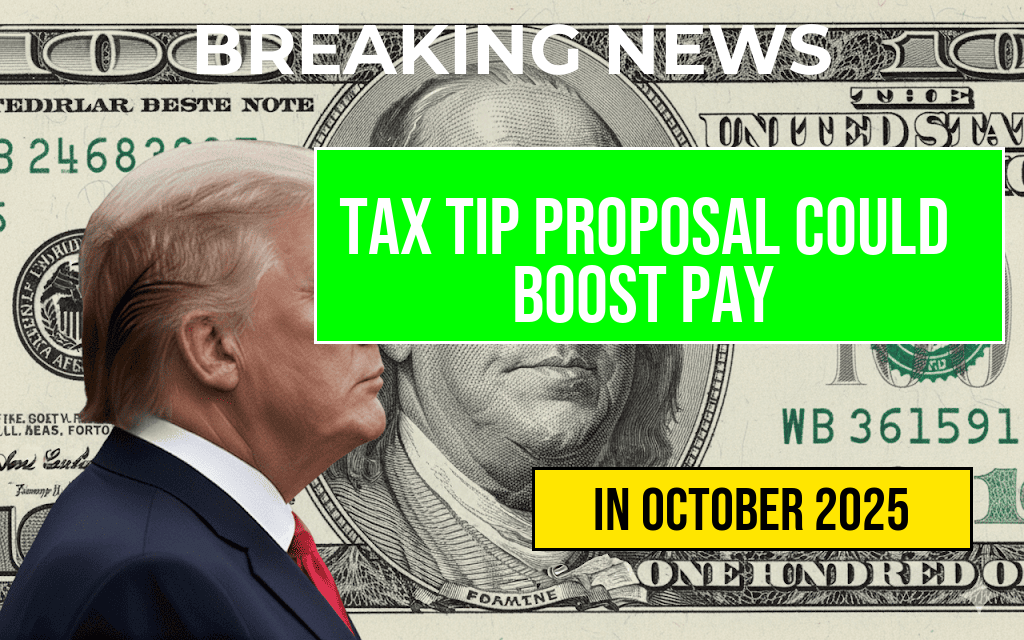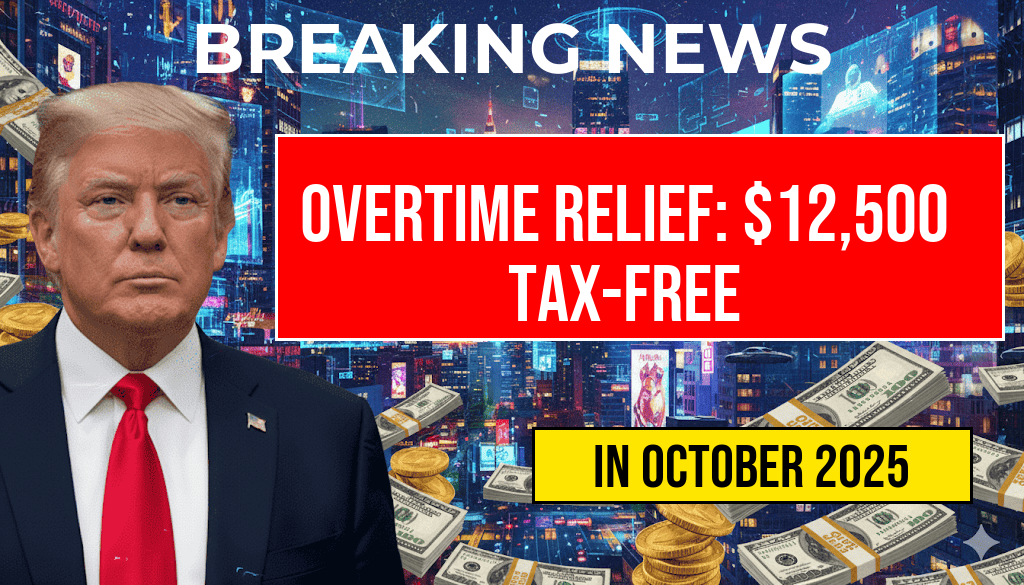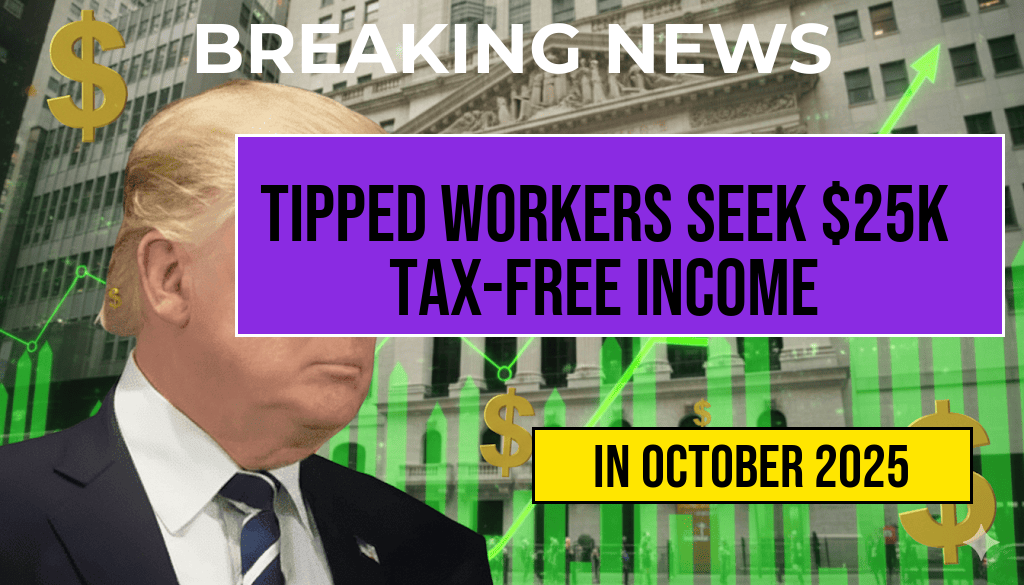Workers who earn overtime pay may soon find relief from unexpected tax burdens thanks to a recent legislative development. A new bill, introduced in Congress, aims to shield up to $12,500 of overtime earnings from federal income taxes, providing significant financial relief for millions of employees. This measure seeks to clarify the tax treatment of overtime earnings, which have historically been taxed as regular income, often pushing workers into higher tax brackets. If passed, the legislation would effectively create a sizable exemption, allowing eligible workers to keep more of their extra earnings without the usual tax deductions. Understanding how this change might impact individual tax situations requires a closer look at the bill’s provisions, eligibility criteria, and the broader context of overtime taxation in the United States.
Understanding the New Legislation
What the Bill Proposes
The legislation, known as the Overtime Relief Act, introduces a federal tax exemption specifically targeting overtime wages. Under current laws, overtime pay—typically calculated at 1.5 times the regular hourly rate—is taxed as ordinary income, which can result in a significant tax hit for hourly workers. The bill proposes a $12,500 exemption from taxable income for overtime earnings accrued within a calendar year. This means that workers could potentially earn up to $12,500 in overtime pay annually without owing federal income taxes on that portion.
How the Exemption Works
The exemption applies solely to overtime wages, not regular salary or wages. It is designed to encourage employers and employees to recognize the value of extra work hours without the immediate tax consequences. For example, a worker earning an overtime rate of $22.50 per hour who clocks 600 additional hours annually could see a substantial tax benefit. The bill stipulates that the exemption is limited to the first $12,500 of overtime earnings per year, after which standard income tax rules apply.
Who Qualifies for the Overtime Tax Relief?
Eligibility Criteria
- Employment Type: The bill primarily benefits hourly workers earning overtime pay, including those in retail, healthcare, manufacturing, and service industries.
- Income Limits: There are no specific income caps, but the exemption is limited to the first $12,500 of overtime earnings in a calendar year.
- Employer Role: Employers will need to adjust payroll systems to separate overtime earnings eligible for the exemption.
Applicable Workers
While the exemption is expected to benefit a broad range of employees, those with higher overtime hours or in roles with significant overtime pay are most likely to see notable savings. Part-time workers who occasionally earn overtime might not fully utilize the exemption if their overtime earnings do not approach the threshold.
Potential Impact on Taxation and Worker Compensation
Tax Savings for Workers
| Overtime Earnings | Tax-Free Portion | Taxable Portion | Estimated Tax Savings |
|---|---|---|---|
| $10,000 | $10,000 | $0 | Up to full amount |
| $15,000 | $12,500 | $2,500 | Depends on tax bracket; potentially significant |
| $20,000 | $12,500 | $7,500 | Reduces taxable overtime by $12,500, lowering overall tax liability |
Employer Considerations
Employers will need to update payroll processing to ensure that overtime earnings are correctly categorized and that the exemption is applied. This may involve system modifications and staff training, especially for companies with large numbers of hourly employees.
Broader Context and Future Outlook
Legal and Policy Background
The bill builds on ongoing debates about fair compensation, tax equity, and the economic pressures faced by hourly workers. Historically, overtime pay has been taxed as regular income, which sometimes discourages workers from seeking overtime opportunities due to the tax implications. Advocates argue that a tax exemption could promote fairer wages and recognize the additional effort workers put in during extended hours.
Potential Challenges and Criticisms
Opponents may raise concerns about the bill’s budgetary impact or argue that it primarily benefits higher-earning workers with substantial overtime hours. Additionally, some policymakers question whether targeted exemptions are the best way to address income inequality or if broader reforms are needed.
Next Steps
The legislation is currently pending approval in Congress. If passed, implementation could begin within the next fiscal year, with employers and payroll services needing to adjust their systems accordingly. Workers are encouraged to consult with tax professionals to understand how the exemption may influence their individual tax filings.
For more detailed information on overtime pay regulations and tax implications, visit the Wikipedia page on Overtime Pay and the Forbes website.
Frequently Asked Questions
What is the main benefit of the new bill regarding overtime relief?
The new bill allows eligible individuals to protect up to $12,500 of their overtime earnings from taxes, making a significant portion of overtime pay tax-free.
Who qualifies for the overtime relief under this new bill?
Eligibility typically depends on specific income thresholds and employment status. Details can vary, but generally, workers earning overtime income within certain limits are protected under this legislation.
How much of my overtime pay can be considered tax-free?
You can have up to $12,500 of your overtime earnings protected from taxes, meaning that amount can be received tax-free under the new bill.
Does this bill apply to all types of employment or only certain sectors?
The bill primarily targets eligible workers who meet specific criteria. It is designed to benefit a wide range of employees, but certain sectors or income levels may have different requirements.
When does the overtime relief take effect, and how can I claim it?
The legislation is effective starting from the date it was enacted. To claim the tax relief, workers should keep accurate records of their overtime earnings and consult with a tax professional or review IRS guidelines for proper reporting.










